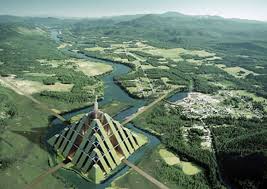
Nature of work
A natural resource specialist researches or studies range from land management practices to provide sustained production of forage, livestock, and wildlife. He/she performs a variety of tasks such as collecting data and analyzing resources. He/she prepares reports, develops management plans, recommends resolutions to resource management issues, oversees programs and budgets, and supervises staff. He/she also provides technical consultation and plans various environmental programs. A natural resources specialist evaluates the effectiveness of various programs and policies and implements necessary modifications. He/she maintains consistent contact with department staff of public organizations, and other professionals in scientific fields to provide consultation on issues, technical assistance. In addition to that he/she advices and negotiates on acceptable solutions to important issues.His/her duties may include measuring and assessing vegetation resources for biological assessment companies, environmental impact statements, and rangeland monitoring programs and planning and directing construction and maintenance of range improvements such as fencing, corrals, stock-watering reservoirs and soil-erosion control structures.
Environment of work
Working hours typically include unsocial hours, such as early starts and evening meetings. It may be necessary to work at some weekends and public holidays. At entry-level in particular, the work can be rough and extremely demanding, often outdoors in all weather conditions. The balance between field work and office-based work varies considerably with more administration, statistical analysis and report writing associated with senior positions. Individual officers are often responsible for their own clerical work. The work requires considerable contact with the public and with the media. Jobs are available in a wide range of settings encompassing both rural and urban. As environmental work is often developed from international policy or good practice, travel abroad to conferences. Meetings may be common in some posts. Professional life
There is considerable competition at all levels for jobs in conservation work and applicants have to be able to demonstrate an enthusiasm and passion for the issues. A good way to do this is by participating in other activities, which will add value to experience and enhance a CV. To further career development he/she might consider volunteering to sit. By getting involved in organizations such as these he/she will be able to meet key players in this community, which should create more opportunities for future development.Promotion often means moving into organization and usually takes an increasingly office-based role, often moving from a 'hands-on' job to an advisory or managerial role. Senior posts are likely to mean greater involvement with planning, budgets, people management, and the administrative aspects of environmental management, while less time is spent in the field. To gain experience and promotion, it is normally necessary to move between the public, voluntary and private sector.
Starting salaries: 35000 SYP.
Getting the job
A natural resources specialist generally needs at least a bachelor degree in a science-related area such as natural resources management, biological science, chemistry, or agriculture. Many employers also require extensive experience in a natural resources field and certification in the use of GIS computer systems. A natural resources specialist may also need experience in program administration or grant writing. Some employers enable individuals to substitute education for extensive experience based on comparison of months of experience from an institution of higher learning. Skills
A natural resources specialist must have extensive knowledge of the principles and theories as well as current policies, laws, and regulations that apply to the protection, conservation, management, and utilization of natural resources. He/she uses this knowledge and his/her experience to effectively communicate with a wide range of external organizations that have diverse interests in land, resources, and programs such as nonprofit organizations and landowners. A natural resources specialist must be able to solve complex problems and have efficient written and verbal communication to successfully interact with many different people and organizations. He/she must be able to evaluate various types of data and statistics to identify the effects of various aspects on a specific issue or program and implement effective strategies. Sources and references
If you need any further information on what is included in this file, you can visit the following websites:· www.iasnr.org, International Association for Society and Natural Resources
· www.ianrp.org, International Association of Natural Resource Pilots
· www.rnrf.org, Renewable Natural Resources Foundation
. Arab Standard Classification of Occupations, 2008, Ed. Arab Labor Organization.
